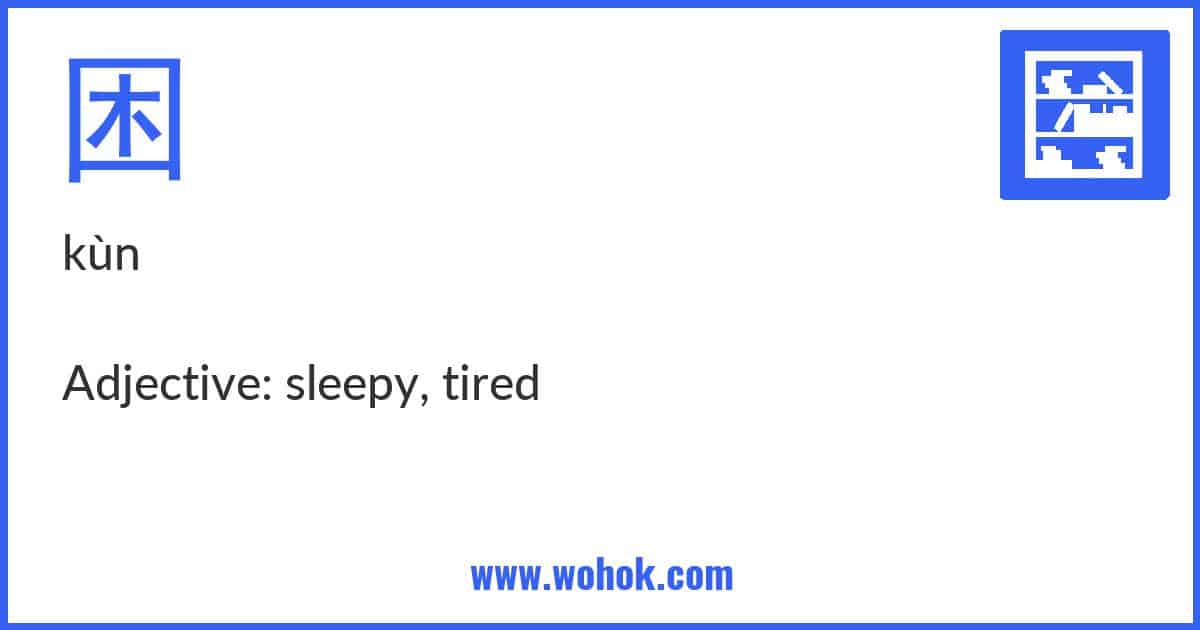The Chinese word 困 means “to be tired” or “to be sleepy”. It is commonly used to describe physical exhaustion or drowsiness, as well as mental fatigue or confusion. For example, if someone has been working late into the night, they might say “我很困” to indicate that they are very tired. Similarly, if someone is struggling to understand a difficult concept, they might say “我被这个问题困扰了很久”, which means “I’ve been troubled by this problem for a long time”.
Translation
Adjective: sleepy, tired
Pronunciation
Example Sentences
| Chinese | Pinyin | Engish |
|---|---|---|
| 我很困,想睡觉 | wǒ hěn kùn, xiǎng shuìjiào | I’m very tired and want to sleep |
| 这个问题让我困扰很久了 | zhège wèntí ràng wǒ kùn rǎo hěnjiǔ le | This problem has been bothering me for a long time |
| 他的话让我感到困惑 | tā de huà ràng wǒ gǎndào kùnhuò | His words make me feel confused |
| 我们被困在了电梯里 | wǒmen bèi kùn zài le diàntī lǐ | We were trapped in the elevator |
| 这个地方很偏僻,很难离开,我们被困住了 | zhège dìfāng hěn piānpì, hěn nán líkāi, wǒmen bèi kùn zhù le | This place is very remote and difficult to leave, we are stuck here |
| 考试的时候,我被困在了某个问题上 | kǎoshì de shíhòu, wǒ bèi kùn zài le mǒu gè wèntí shàng | During the exam, I was stuck on a certain question |
HSK
困 is part of HSK Level 4 in HSK 2.0. In the newer HSK 3.0 it is part of HSK Level 3.
Learning Card


